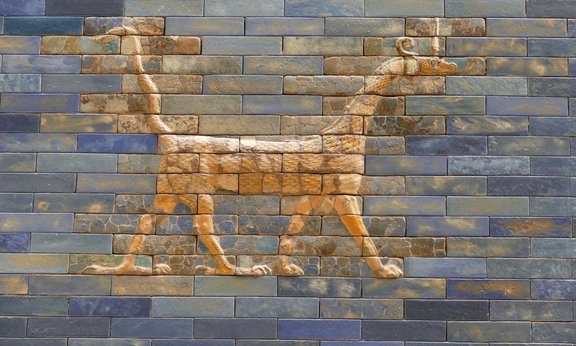The students of the Master’s Degree Programme in Linguistics study the structure of human communication developed over many thousands of years. In this programme students acquire knowledge about the interdepencence of language, mind and society by learning about reasoning, language, thinking, language acquisition and feminist linguistics.
Acquiring foreign language competencies is also a part of this programme as well as studying current developments in digitization and computational linguistics.
Please note: the language of instruction for this programme is German.
Study Code
UC 066 867
FAQ
Graduates possess highly specialised knowledge in the field of general, applied and historical-comparative linguistics. They are able to apply their competences in language practice, cultural science and media by independently formulate and substantiate scientific arguments and to find innovative solutions to problems.
Beyond the skills acquired during the bachelor's programme, graduates of the Master of Arts programme in Linguistics are enabled to carry out theoretically sound analyses of linguistic facts and to assess theoretical models both from a synchronic and a diachronic perspective.
Subject-specific theoretical skills: By dealing with the cognitive and evolutionary fundamentals of language, its grammatical and logical structure as well as its social embedding, the students are enabled to carry out scientific studies independently.
During the Master's Programme Linguistics, the students' foreign language skills are broadened and consolidated mainly from a diachronic and typological perspective.
The understanding of interaction among language, media and culture is consolidated in the field of Applied Linguistics within courses dedicated to media practice and application of fundamentals of communication.
Key qualifications apart from subject-specific scientific qualifications, such as analytical thought, mental flexibility, good time management, fast and independent familiarisation with new fields of work, social skills and others may be acquired during the study programme at the university or outside.
The Master's Programme Linguistics prepares for careers in teaching and research at the university or a non-university institution. Further occupational fields for graduates can be found in the fields of language consulting and communication training, language and communication technology as well as in the media sector, in the field of language standardization and planning, in public administration or diplomatic service. The acquistion of additional qualifications in the fields mentioned above is to be recommended.
Graduates tracking: Shows which occupational fields students enter after graduation
Doctoral Programmes
More offers
Faculty of Language, Literature and Culture Department of Linguistics Examination Office Information for students with disabilities
Curriculum
From the field
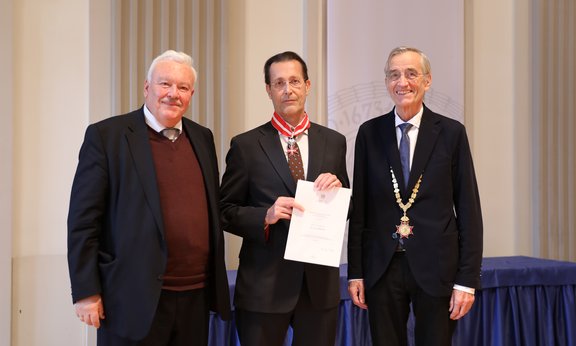
Ivo Hajnal erhielt Großes Silbernes Ehrenzeichen
Dem Sprachwissenschaftler Ivo Hajnal wurde heute an der Universität Innsbruck das Große Silberne Ehrenzeichen für Verdienste um die Republik Österreich verliehen. Mit der Auszeichnung werden seine herausragenden Leistungen in der Wissenschaft und sein langjähriges Wirken als Senatsvorsitzender und als Initiator des Austria-Israel Academic Network Innsbruck gewürdigt.
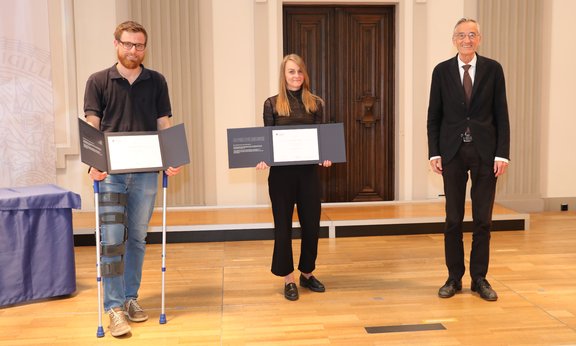
Literaturpreis der Zuegg-Stiftung verliehen
Die Innsbrucker Autorin Katharina Schaller und der bekannte Tiroler Poetry-Slammer Stefan Abermann erhielten den Literaturpreis 2020 der H. und K.-Zuegg-Stiftung. Die Übergabe des mit 4.000 Euro dotierten Förderpreises erfolgte am 1. Juli in der Aula der Universität Innsbruck im Beisein von Rektor Tilmann Märk und Vizerektorin Ulrike Tanzer.
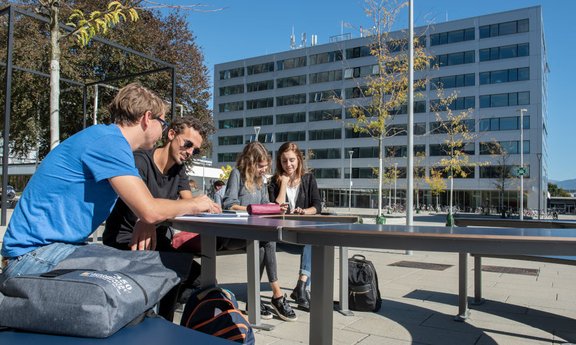
Zentrale Studienberatung
Wir sind die erste Anlaufstelle bei allen Fragen rund ums Studium für Schüler*innen, Studieninteressierte und Studierende sowie Eltern und Lehrer*innen.
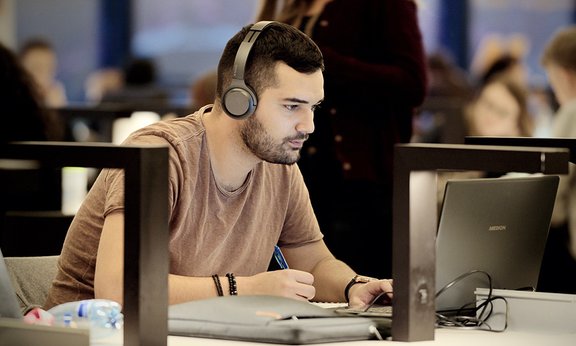
Onlinesessions
In den unterschiedlichen Onlinesessions wird das vielfältige Studienangebot der Universität Innsbruck kurzweilig vorgestellt. Die Onlinesessions sind eine gute Plattform, um schnell und unkompliziert die richtigen Antworten auf individuelle Fragen zu bekommen.
Related studies

English and American Studies (Master)
Master of Arts

Educational Sciences (Master)
Master of Arts

Romance Studies (Master)
Master of Arts



